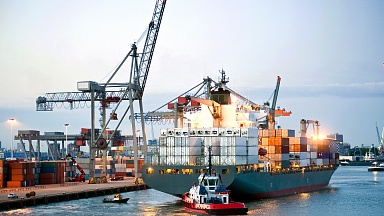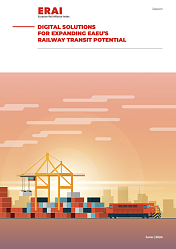However, regulators are watching the behaviour of the container lines with increasing scrutiny for any evidence of unfair practices.
Asia-North Europe spot indices readings were more or less flat, remaining in the region of $10,000 per teu, but forwarders reported to The Loadstar that their short-term deals had been withdrawn.
Indeed, one UK-based NVOCC contact told The Loadstar this week his rate agreement with a carrier had been cancelled «without notice».
He added: «We thought that we were getting back to some sort of normal with our relationship with the line, but they have just pulled our deal early, despite some of the containers being delivered to Ningbo next week.»
On the transpacific, the Freightos Baltic Index (FBX) reading for Asia to the US west coast, which includes an element of premium fees, saw a big spike of $2,000, to $14,259 per 40ft.
For east coast ports, the FBX recorded a more modest increase of some $300 per 40ft, to $16,271, although the expectation is that spot rate increases will accelerate as the 1 July expiry of the labour contract at US west coast ports nears.
Carriers continue to report strong demand on the transpacific, despite inflationary pressures on US consumers, and some lines are restricting the contracted business they commit to in favour of what they expect to be more lucrative spot cargo.
During Israeli carrier Zim’s first-quarter results presentation this week, CFO Xavier Destriau said the company had decided to reject requests from some customers for contracts and «stick with a 50:50 split between contract and spot».
«That has been a recipe that has worked for Zim over the past few years, and we didn’t see any reason to change it,» he explained.
Meanwhile, in the final session of the 2022 FIATA HQ meeting in Geneva today, regulators from China, Europe and the US made it clear that, in a bid to ease the supply chain pain of shippers, they were prepared to increase the scope of their ‘forensic examination’ of carrier practices.
Dr Wei Wang, director general of China’s Institute of Market Economy development research centre (DRC), said the DRC intended to «strengthen the regulation on pricing and competition». He said this would include strictly enforcing price reporting and arranging «special talks with shipping companies to ensure compliance».
The EC director for transport in its competition directorate, Henrik Morch, said although inspectors had not so far found any evidence of unfair competition, «that does not mean it does not exist».
Mr Morch advised that the commission’s review of the EU’s Consortia Block Exemption Regulation, which expires in 2024, allowing shipping lines with a combined market share of below 30% to enter into cooperation agreements, was «about to be launched».
Meanwhile FMC commissioner Rebecca Dye spoke of the agency’s crackdown on D&D charges, resulting in heavy fines for two carriers, and alluded to a number of other initiatives to be announced that would include the appointment of compliance officers in shipping line offices that would report only to carrier CEOs.





